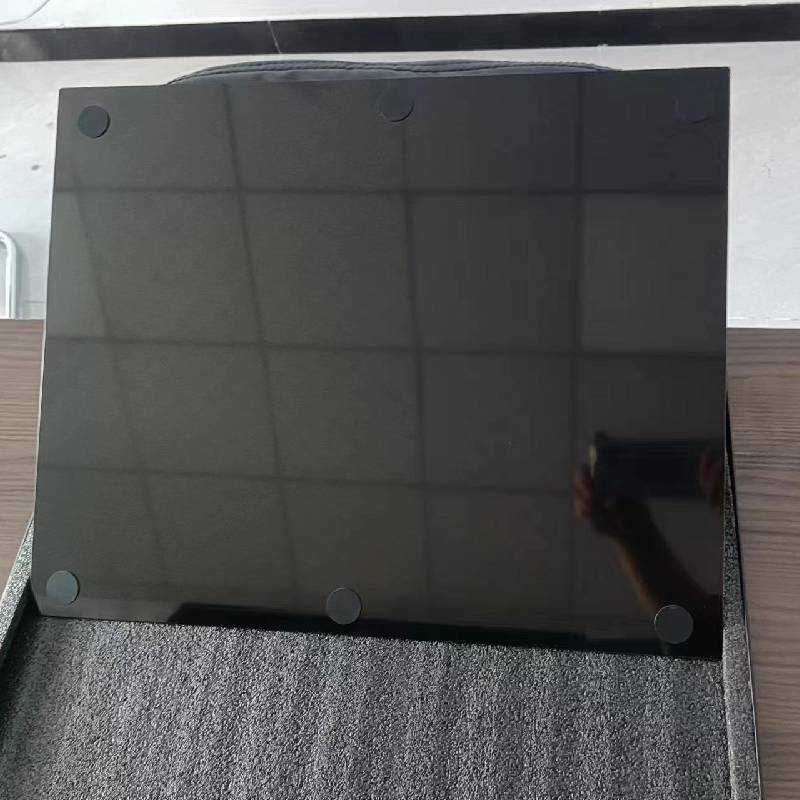The Aesthetic Appeal of Decorative Glass Wall Design
In contemporary architecture and interior design, decorative glass wall designs have emerged as a captivating trend, combining functionality with artistic expression. Whether employed in residential, commercial, or hospitality environments, these beautifully crafted installations serve as both structural elements and focal points, inspiring creativity and innovation in spatial design.
A Versatile Material
Glass as a material offers unparalleled versatility. With advancements in technology and manufacturing processes, decorative glass can now be produced in various forms, textures, colors, and patterns. From etched motifs and stained glass to digitally printed designs and frosted finishes, the possibilities are boundless. This diversity enables designers to tailor glass wall installations to suit specific themes, styles, and moods within a space.
For instance, in a corporate office, a glass wall adorned with an abstract pattern can evoke a sense of modernity and professionalism, fostering an inspiring work environment. Conversely, in a residential setting, decorative glass featuring warm hues or botanical designs can create a cozy and inviting atmosphere. The reflective properties of glass also help to enhance the natural light within a space, making areas feel larger and more open.
Creative Applications
The applications for decorative glass walls are numerous and varied. In residential design, these installations can serve as room dividers, allowing for an open-concept feel while maintaining privacy. A beautifully designed glass partition can separate living spaces without sacrificing light or visibility, making it an ideal choice for modern homes.
In commercial environments, decorative glass walls can transform atriums, lobbies, and conference rooms. With the potential for branding through custom designs, businesses can use these installations to convey their identity and values. For example, an innovative tech company might choose a glass wall featuring digital elements or circuitry designs, reinforcing its image as cutting-edge and forward-thinking.
Furthermore, in hospitality settings, decorative glass walls can add an element of luxury and grandeur. High-end hotels may utilize glass to showcase views of the surrounding landscape or cityscape, while restaurants might employ artistic glass dividers to create intimate dining experiences. Such design choices not only elevate the aesthetic appeal but also enhance the overall guest experience.
decorative glass wall design
Cultural Significance and Storytelling
Decorative glass walls also have the power to tell stories and convey cultural significance. Artists and craftsmen can collaborate on bespoke installations that reflect local heritage, history, or natural beauty. For example, a glass wall in a culturally rich area might incorporate traditional motifs or symbols, creating a sense of place and connection.
Moreover, public spaces, such as museums and galleries, can benefit from the use of decorative glass as a medium for storytelling. By integrating artistic glass installations, these venues can captivate visitors, providing them with a deeper understanding of the exhibitions and the narratives they embody. This ability to merge art with architecture enhances the cultural fabric of communities, fostering appreciation for both.
Sustainability and Innovation
As the focus on sustainability grows, decorative glass wall designs have adapted to meet eco-friendly standards. Many manufacturers now produce energy-efficient glass that reduces heat loss and improves insulation. Additionally, using recycled materials and eco-conscious production techniques is becoming more common in the decorative glass industry. This commitment to sustainability ensures that beautiful design does not come at the expense of environmental responsibility.
Innovation in glass technology continues to shape the possibilities for decorative walls. Smart glass, which can change opacity with the flick of a switch, offers dynamic control over privacy and light. Such advancements open new avenues for creative expression and practical applications in design, making glass walls an exciting prospect for the future.
Conclusion
The allure of decorative glass wall design lies in its ability to blend art with architecture, enhancing both function and beauty in various settings. As a medium, decorative glass offers unparalleled versatility, allowing for creative expression that reflects personal taste and cultural significance. Whether in homes, offices, or public spaces, these installations have the power to inspire, create connections, and elevate the overall experience of a space. As technology continues to advance and sustainability remains a priority, the future of decorative glass walls looks promising and filled with endless possibilities. Embracing this innovative design approach can undoubtedly transform the way we perceive and interact with our environments.
 Afrikaans
Afrikaans  Albanian
Albanian  Amharic
Amharic  Arabic
Arabic  Armenian
Armenian  Azerbaijani
Azerbaijani  Basque
Basque  Belarusian
Belarusian  Bengali
Bengali  Bosnian
Bosnian  Bulgarian
Bulgarian  Catalan
Catalan  Cebuano
Cebuano  Corsican
Corsican  Croatian
Croatian  Czech
Czech  Danish
Danish  Dutch
Dutch  English
English  Esperanto
Esperanto  Estonian
Estonian  Finnish
Finnish  French
French  Frisian
Frisian  Galician
Galician  Georgian
Georgian  German
German  Greek
Greek  Gujarati
Gujarati  Haitian Creole
Haitian Creole  hausa
hausa  hawaiian
hawaiian  Hebrew
Hebrew  Hindi
Hindi  Miao
Miao  Hungarian
Hungarian  Icelandic
Icelandic  igbo
igbo  Indonesian
Indonesian  irish
irish  Italian
Italian  Japanese
Japanese  Javanese
Javanese  Kannada
Kannada  kazakh
kazakh  Khmer
Khmer  Rwandese
Rwandese  Korean
Korean  Kurdish
Kurdish  Kyrgyz
Kyrgyz  Lao
Lao  Latin
Latin  Latvian
Latvian  Lithuanian
Lithuanian  Luxembourgish
Luxembourgish  Macedonian
Macedonian  Malgashi
Malgashi  Malay
Malay  Malayalam
Malayalam  Maltese
Maltese  Maori
Maori  Marathi
Marathi  Mongolian
Mongolian  Myanmar
Myanmar  Nepali
Nepali  Norwegian
Norwegian  Norwegian
Norwegian  Occitan
Occitan  Pashto
Pashto  Persian
Persian  Polish
Polish  Portuguese
Portuguese  Punjabi
Punjabi  Romanian
Romanian  Russian
Russian  Samoan
Samoan  Scottish Gaelic
Scottish Gaelic  Serbian
Serbian  Sesotho
Sesotho  Shona
Shona  Sindhi
Sindhi  Sinhala
Sinhala  Slovak
Slovak  Slovenian
Slovenian  Somali
Somali  Spanish
Spanish  Sundanese
Sundanese  Swahili
Swahili  Swedish
Swedish  Tagalog
Tagalog  Tajik
Tajik  Tamil
Tamil  Tatar
Tatar  Telugu
Telugu  Thai
Thai  Turkish
Turkish  Turkmen
Turkmen  Ukrainian
Ukrainian  Urdu
Urdu  Uighur
Uighur  Uzbek
Uzbek  Vietnamese
Vietnamese  Welsh
Welsh  Bantu
Bantu  Yiddish
Yiddish  Yoruba
Yoruba  Zulu
Zulu 

